




 [Radtour S�d1]
[Radtour S�d1]
Dorsten History - Station: Wulfen Ammunition Depot
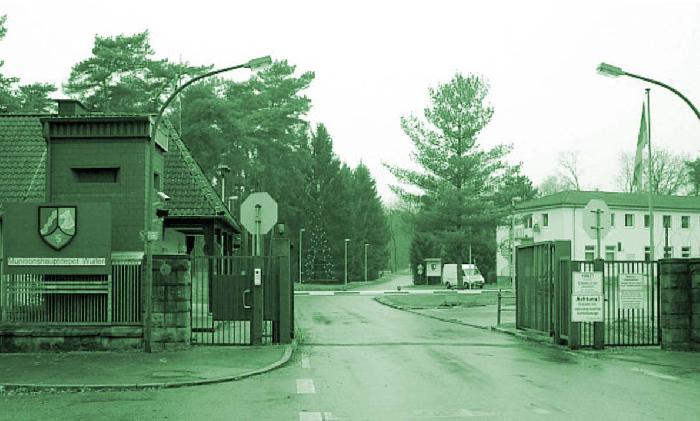
The Wulfen Army Ammunition Plant, also known as "Muna Wulfen," was one of the numerous ammunition factories built in Nazi Germany during the National Socialist era. This particular facility, located between the Dorsten districts of Deuten, Holsterhausen, Hervest, and Wulfen, served the Wehrmacht as a site for the production and storage of ammunition. The Muna was built in the 1930s and played an important role during World War II in supplying the German armed forces with ammunition and explosives.
|
The German air squadron of the Condor Legion destroys the Spanish town of Guernica. 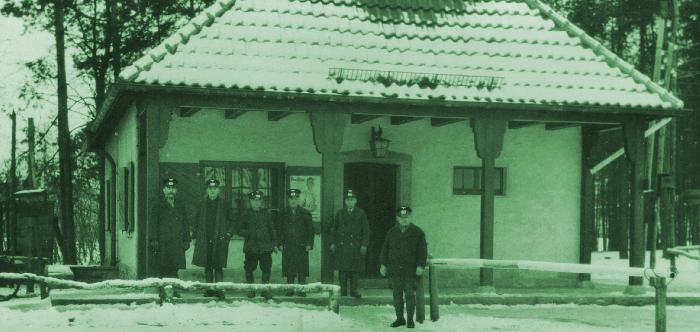 Entrance in 1939 with German soldiers | _ |
1937 |
_ |
In December, the Military District Administration VI in Münster informed the local mayor of Wulfen about the military acquisition of a site located in the districts of Wulfen and Hervest. The site extends between the two railway lines running through Deuten and through Wulfen. The expropriation of private owners with minimal compensation begins immediately. |
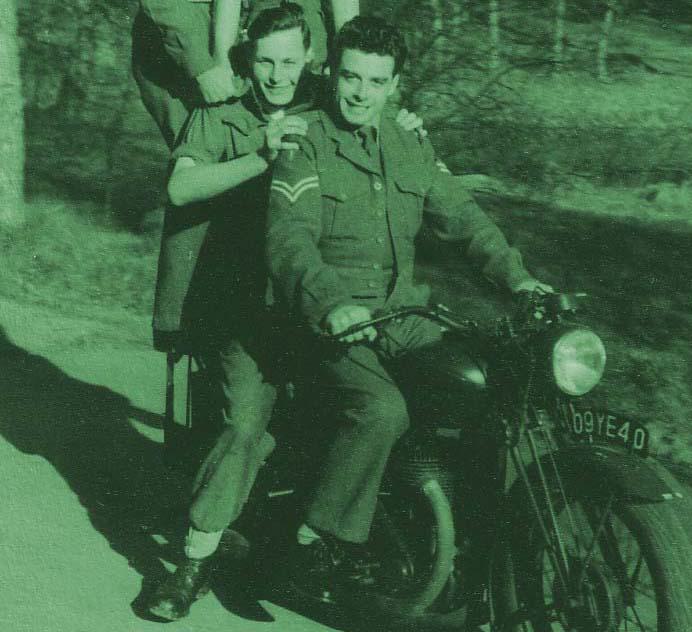 Britische Soldaten bei der Muna |
1939 |
_ |
With intensive construction activity involving over 800 workers, the munitions plant is completed. The “Muna” is connected to the road and railway networks. After the outbreak of the Second World War, 91 female and 217 male Soviet forced laborers are also deployed. On December 29, 1944, a munitions building explodes, killing 26 people, including 13 forced laborers. | |
|
|
1945 |
_ |
After the end of the Second World War, the British Rhine Army takes over the “Muna” in July and employs 108 German workers. By 1949, the number rises to 360, making the “Muna” the largest employer in Wulfen. From May 1946, around 50 Yugoslavs are employed as security personnel. | |
|
The rearmament of both German states begins with the establishment of the Bundeswehr and the NVA.
| _ |
1956 |
_ |
At the “Great Ring,” the “Englishmen's Settlement” is created for British military families. A primary school is built on the “Muna” premises for British schoolchildren. |
|
|
1983 |
_ |
As the anti-war movement grows, a peace service is held in October at the gates of the “Muna.” | |
|
381 new ammunition bunkers 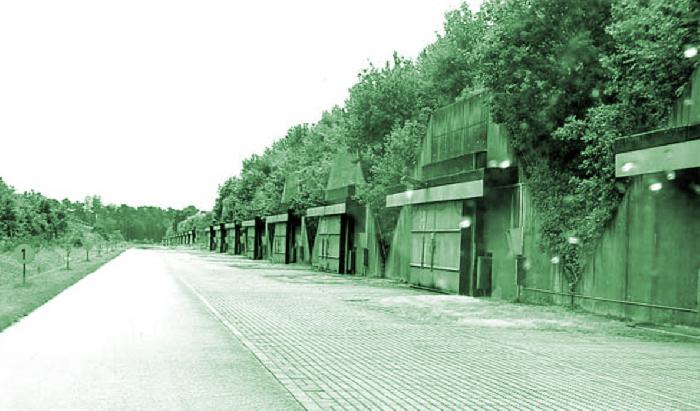 381 neue Munitionsbunker | _ |
1987 |
_ |
The British Rhine Army begins enlarging and modernizing the “Muna.” 381 new munitions bunkers are built. |
|
The Two Plus Four Agreement between the Federal Republic of Germany, the GDR, and the Allied Powers made German reunification possible in terms of foreign policy.
| _ |
1990 |
_ |
During the Gulf War against Iraq, numerous military trucks transport munitions from the “Muna” through the town. This leads to protest marches against the Gulf War and the munitions depot. More than 1,000 people participate in the 1990 Easter march to the “Muna.” Representatives from the council, administration, and local peace groups decide to establish a council commission on the future of the “Muna.” |
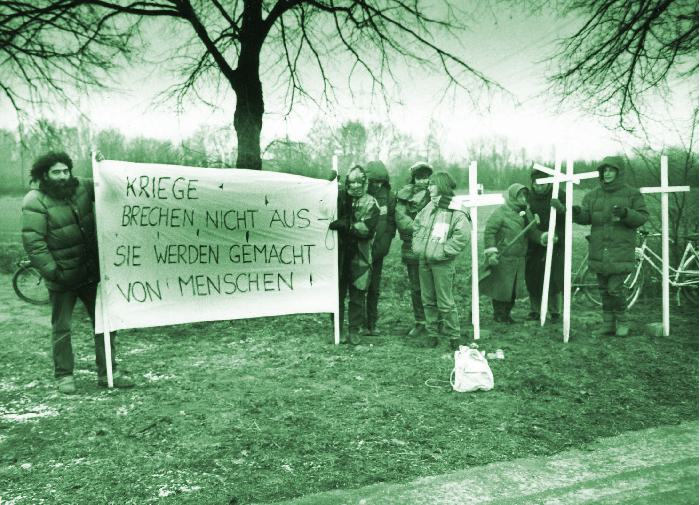 Easter March 1992 |
1997 |
_ |
The British Army announces its intention to vacate the Wulfen site. In October 1998, the British soldiers are bid farewell with a ceremonial parade in the Dorsten marketplace. | |
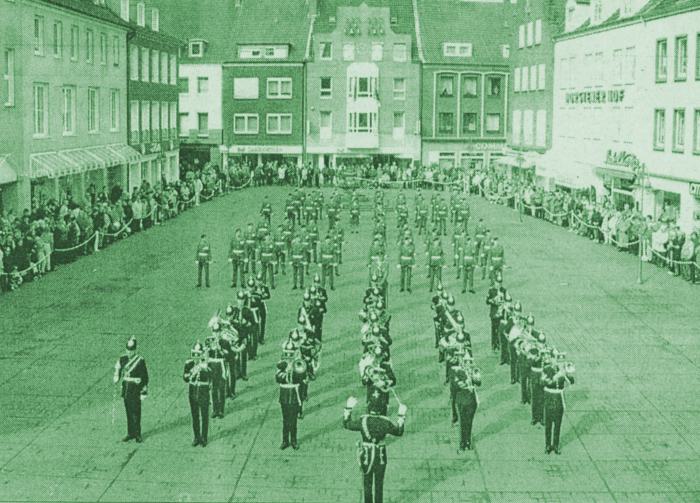 Farewell Parade of British Troops 1998 |
1999 |
_ |
On July 1, the Bundeswehr, led by Lieutenant Colonel Rudolf Haller, takes over the Wulfen munitions depot. Through the integration of smaller stations, Wulfen becomes the largest munitions depot in Germany. | |
|
|
2004 |
_ |
ix more munitions depots from North Rhine-Westphalia are assigned to the main site in Wulfen, now named the “West Munitions Supply Center.” |
[zurück]
Daten und Fakten
Eröffnung - 23.05.2024
Adresse - Main entrance
Geodaten - 51°42'17.8'' N 7°00'04.3''E
Ceremonial opening
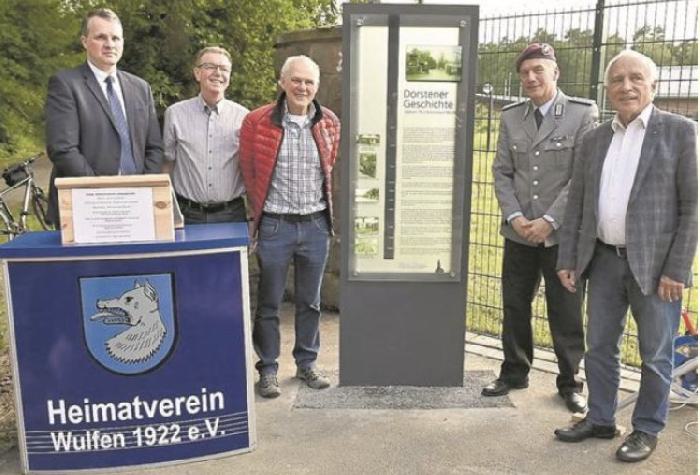
Before the unveiling of the history station, the Wulfen brass band created a festive atmosphere by playing the British and German national anthems. Afterwards, the curtain was lifted, and the new panel shone in the warm light of the evening sun. This Dorsten history station is located directly in front of the main entrance of the Munitions Supply Center West (Muna-Zentrum West) on Munastraße in Wulfen.
Lieutenant Colonel Thomas Vellmer, head of the Munitions Supply Center West, warmly welcomed the many guests who had gathered at the Muna gate.
Interesting presentations
Reinhardt Schwingenheuer from the historical group of the association explained to those present the information recorded on the panel.
In his entertaining presentation, he also spoke about many interesting aspects surrounding the "Muna" and the people who worked and lived there.
"Together with the Local History Association and the director of MVZ West, we deliberately chose May 23, 2024, as the date for the ceremonial inauguration of this special history station.
Exactly 75 years earlier, on May 23, 1949, the Basic Law of the Federal Republic of Germany was adopted by the Parliamentary Council in Bonn. In the oath or pledge formula for soldiers of the Bundeswehr, it says: ‘I swear/pledge to loyally serve the Federal Republic of Germany and to bravely defend the rights and freedom of the German people, so help me God,’” explained Mayor Tobias Stockhoff.

